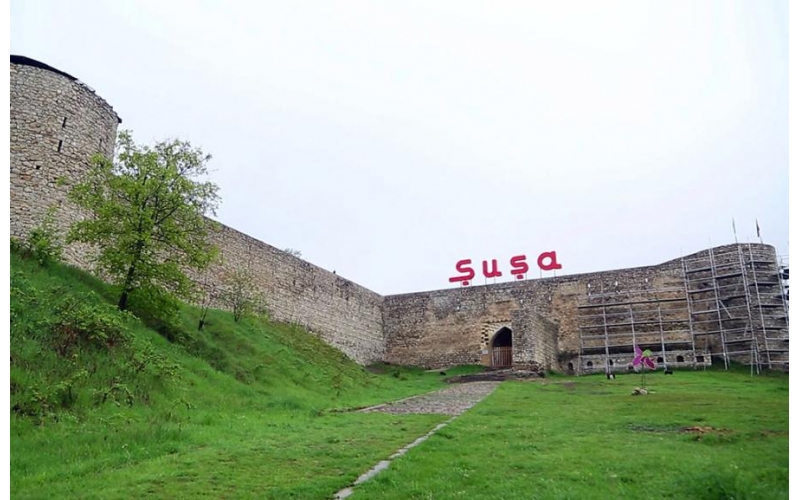
In an article named "THE BATTLE OF SHUSHA CITY AND THE MISSED LESSONS OF THE 2020 NAGORNO-KARABAKH WAR" the authors write that the most important battle of the Second Karabakh War occurred in the city of Shusha. Once Shusha fell, Armenia had to sign a capitulation act.
"The greater Shusha region, consisting of the city of Shusha and ten surrounding villages, sits within the heart of Karabakh. The city has been at the center of Azerbaijani and Armenian fighting for centuries.
Often described as the "cradle of Azerbaijani culture," Shusha was home to Azerbaijani intellectuals, poets, and writers and houses important cultural sites such as mosques and mausoleums," the authors said.
Given its undisputed cultural significance and key geographic advantage to both Azerbaijan and Armenia, controlling Shusha was a major objective of both parties during the 2020 conflict, they noted.
The lessons of the 2020 Karabakh War have yet to be fully discovered. Military analysts, international relations scholars, and other groups have begun to highlight the unique aspects of the war.
The war also highlights major urban warfare lessons that deserve attention. According to the authors, these lessons include the following:
Cities remain operational and strategic objectives in war. The liberation of Shusha was a major strategic victory for Azerbaijan, and it ultimately decided the outcome of the war. Once Shusha was liberated, Armenia was forced to surrender out of fear that Azerbaijani forces would be able to target and possibly liberate the city of Khankendi. Cities have always been operational and strategic objectives in war. They are the centers of political and economic power for nations. As cities grow in number, size, and complexity, some argue that military forces should simply avoid them and the unique challenges they pose. Shusha shows that this is simply not an option. They are unavoidable and militaries must prepare to operate in them to be effective in any war.
Air superiority, bombing, long-range precision strikes, and unmanned aircraft systems are all enabling warfighting capabilities. It was not just the latest attack drones that won the Karabakh War. Urban warfare is also not solely an infantry fight. The decisive operation of the war, the physical battle for Shusha, required combined arms capabilities that leveraged special operations forces, fires, armor, engineers, and infantry in both the shaping and decisive operations. This was especially apparent by the use of fires, mobile protected firepower, and infantry units to clear urban terrain in building-to-building combat.
Militaries must prepare for both urban offense and defense operations.
"As analysts and researchers study the 2020 Karabakh War, they will continue to unearth valuable and wide-ranging lessons for the future of war. Whether the conflict signals a change in the character of warfare is perhaps not yet clear. But one thing in particular certainly is: the war shows that militaries must be prepared to fight for—and fight in—cities," the authors said.
Views: 263
